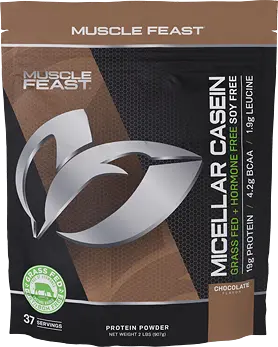Knowledge BaseYou're Questions Answered
What are the negatives of casein protein?
Casein protein is a popular supplement known for its slow digestion rate, which provides a sustained release of amino acids to the muscles. While it offers several benefits, such as promoting muscle recovery and supporting overall protein intake, there are some potential negatives associated with its use. Below, we explore the possible downsides of casein protein.
Negatives of Casein Protein
- Slow Digestion
One of the primary characteristics of casein protein is its slow digestion rate. While this can be beneficial for overnight recovery, it may not be ideal for individuals seeking a quick protein boost post-workout. The slower absorption rate means that casein may not be as effective as faster-digesting proteins like whey when it comes to muscle protein synthesis immediately after exercise. - Lactose Content
Casein protein is derived from milk, and while some casein products are low in lactose, they can still cause digestive discomfort for individuals who are lactose intolerant. Symptoms such as bloating, gas, or stomach cramps may occur if lactose-sensitive users consume casein protein without realizing its dairy origins. - Allergenic Potential
Since casein is a dairy protein, it can trigger allergic reactions in individuals with a dairy or milk protein allergy. This can result in symptoms ranging from mild reactions, such as skin rashes, to more severe responses like difficulty breathing or anaphylaxis. Individuals with known dairy allergies should avoid casein protein. - Thicker Texture and Taste
Casein protein tends to have a thicker, creamier texture compared to whey protein or plant-based alternatives. While some individuals enjoy this consistency, others may find it less appealing or harder to mix into liquids. The taste and texture might require more liquid to achieve a smooth consistency, making it less convenient for quick shakes or on-the-go use.
Considerations
- Usage Timing
Casein protein is best used at times when a slow release of protein is beneficial, such as before bedtime or between meals. It may not be ideal for post-workout recovery, when faster-digesting proteins like whey are more effective. - Alternative Protein Sources
Individuals with lactose intolerance, dairy allergies, or those looking for plant-based options might consider alternatives like pea protein, soy protein, or egg protein, which can offer similar benefits without the potential downsides associated with dairy proteins.
While casein protein offers several benefits for muscle recovery and sustained amino acid release, it does come with some potential downsides. Slow digestion, allergenic potential, and its thicker texture may not be suitable for everyone. Additionally, those with lactose intolerance, dairy allergies, or pre-existing kidney issues should be cautious when using casein protein. For those seeking an alternative, whey or plant-based proteins may be better options depending on individual needs and preferences.
Related Questions

Your Answer
We are a participant in the Amazon Services LLC Associates Program, an affiliate advertising program designed to provide a means for us to earn fees by linking to Amazon.com and affiliated sites.






